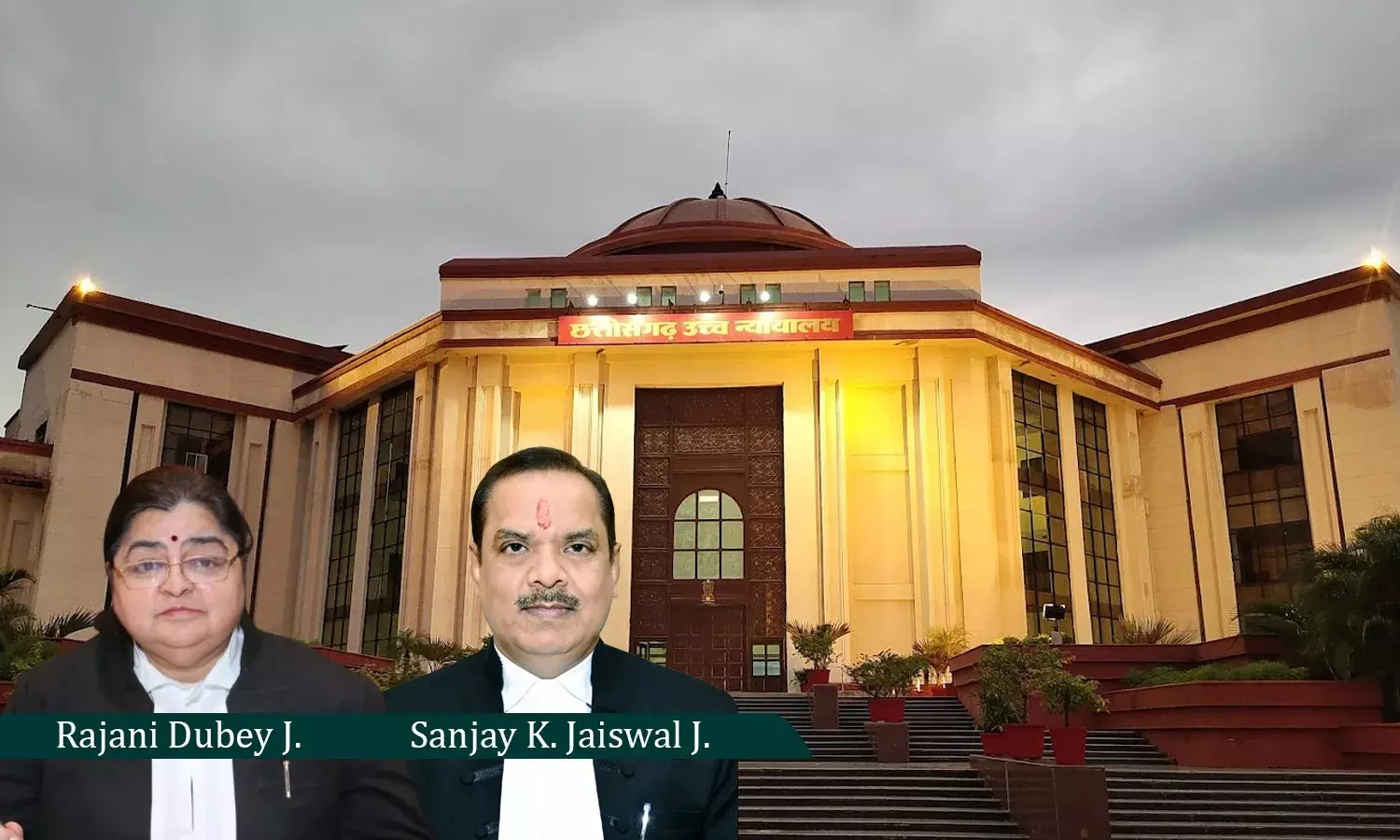Repeatedly Demeaning Husband’s Religious Beliefs & Insulting His Gods Amounts To Mental Cruelty: Chhattisgarh HC Upholds Divorce Decree
The Chhattisgarh High Court observed that wife’s behavior of repeatedly demeaning her husband’s religious beliefs, insulting his Gods and humiliating him amounts to mental cruelty.
The appellant-wife had approached the High Court with an appeal challenging the judgment and decree passed by the Family Court whereby the application under Section 13(1-A) 13(1B-ii) of the Hindu Marriage Act filed by the respondent/husband for grant of decree of divorce was allowed.
Highlighting that the concept of "Sahadharmini" (Equal Partner in Dharma), underscores the wife's essential role in fulfilling religious obligations ,the Division Bench of Justice Rajani Dubey and Justice Sanjay Kumar Jaiswal observed, “ This principle is deeply rooted not only in texts like the Mahabharata and Ramayana but also in the Manu Smriti, which explicitly states that a man cannot perform a yajna without his wife, as the yajna remains incomplete without her.”
Advocate Meenu Banerjee appeared for the Appellant while Advocate B.N. Mishra represented the Respondent.
It was alleged by the respondent-husband that after marriage, the non-applicant quarreled over petty matters and she deprived the applicant of marital happiness. She abandoned the Hindu religion and adopted Christianity. It was the husband’s case that she also threatened the him to implicate him in a false case.
However, the non-applicant/wife denied all the allegations leveled by the applicant/husband against her and stated that the applicant/husband and his family members used to follow Christianity and due to this she got acquainted with him. It was her case that she was tortured by the applicant/husband for demanding dowry. The applicant/husband himself abandoned her and she was willing to live in a joint family.
The Bench took note of the fact that the statement of respondent/husband made it clear that he is a follower of Hindu religion and all the rituals of Hindu religion are performed in his house. He is the elder son of his parents and he has to perform the festivals and rituals of his house. The appellant/wife does not accompany him in any worship or religious function. She called the Hindu religion a hypocrisy and also mocked the same. Saddened by this kind of behavior of the appellant, the respondent used to feel ashamed in front of the people of the house and society.
The High Court also noticed that the Appellant/wife admitted the fact that she lived with the respondent/husband only for 1 year out of 6 years. “Close scrutiny of oral and documentary evidence and admission of appellant/wife in her statement makes it clear that she regularly visited the Church and since 10 years, she has not followed the Hindu religion and also did not take part in Hindu Puja”, it added.
The Bench further opined that the Respondent, being a devout Hindu and the elder son of his family, is obligated to perform several important rituals for himself and the members of his family. The Appellant/wife, by her own admission, has not engaged in any form of puja for the past 10 years and instead attends church for her prayers.
“Here, the Respondent has argued that the Appellant repeatedly demeaned his religious beliefs, insulted his gods, and humiliated him. In our view, such behavior from the wife who is expected to be the "Sahadharmini"-amounts to mental cruelty towards a devout Hindu spouse”, the Bench said.
Dismissing the appeal and affirming the Trial Court’s order, the Bench directed the Respondent/husband to pay an amount of Rs 5 lakh to the appellant/wife as a permanent alimony.
Cause Title: X vs Y [Neutral Citation: 2024:CGHC:42296-DB]
Appearance:
Petitioner: Advocate Meenu Banerjee
Respondent: Advocates B.N. Mishra & Ganesh Ram Burman




